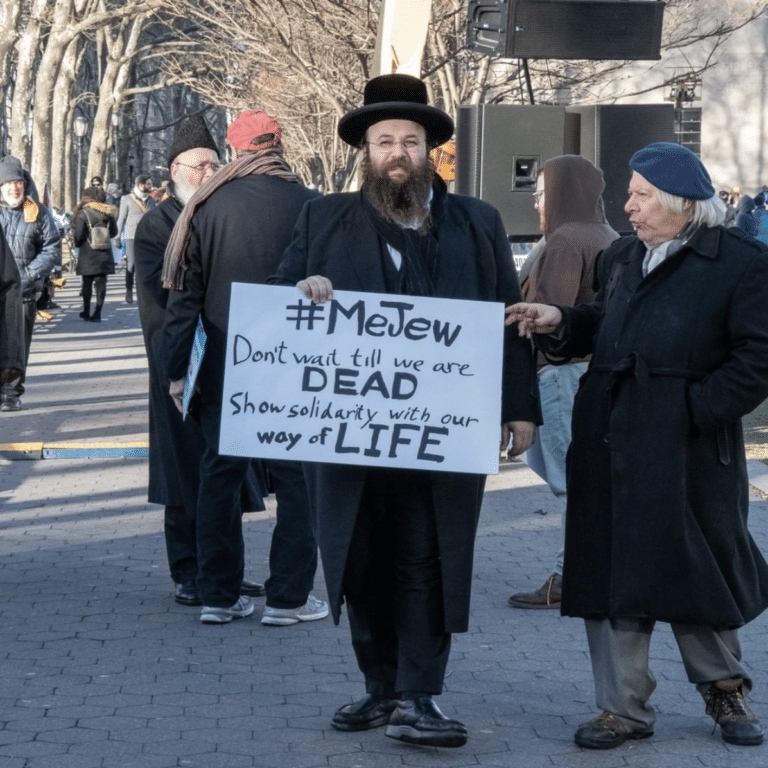
The following is an excerpt from Yair Rosenberg and Unpacked’s upcoming series, ‘Antisemitism, Explained’.
Why does antisemitism continue to flourish across the spectrum? The answer is simple: people only tend to police anti-Jewish bigotry when it comes from the other side, not their own.
It’s understandable why this happens. After all, it’s much easier to condemn the prejudice of people you already despise and disagree with. It’s a lot harder to speak up when the bigotry is coming from your friends and allies.
But think about it: Where do you have the power to make change? Among your friends–or among your enemies? In your community–or in someone else’s?
Yet too often, our national conversation about antisemitism consists of people trying to bounce antisemites from parties they weren’t invited to–conservatives policing progressive antisemitism, progressives policing conservative antisemitism, and so on.
You don’t have to be an expert in antisemitism to see why this doesn’t work.
So how can we stop this from happening, and start fighting the antisemites instead of each other?
The secret is this: Focus on the antisemitic ideas expressed, not the individual expressing them. If we train ourselves to recognize anti-Jewish sentiments, rather than getting distracted by their source, we will be much more successful at identifying and uprooting the hateful ideas across the board. But if we pick and choose which antisemitism to care about based on who says it, and give our own community a pass, the bigotry will continue to spread unchecked.
Because the truth is: casting anti-Jewish prejudice as a specifically left-wing problem… or right-wing problem… or Christian problem… or Muslim problem… is really just a way of saying that it’s someone else’s problem.
The only people who win this argument over who’s the bigger bigot are the antisemites, who continue to spread their hate while their supposed opponents point fingers at each other.
To truly combat antisemitism, we need to stop thinking of it as other people’s problem, and start confronting it as our problem.
Originally Published May 26, 2021 12:01AM EDT
